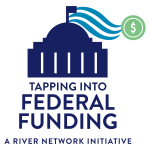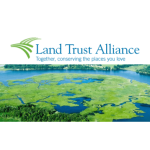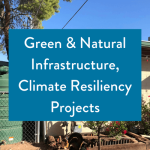Clean Water State Revolving Fund Training 1: The Basics
3
Event Info

The SRF State Advocates Forum is hosting a three-part series on the Clean Water State Revolving Fund (CWSRF). In this first session, come learn the basics – what is the Clean Water SRF, what kinds of projects can it fund, and how can it address water quality issues in your community? The training will include interactive discussions and provide a foundation for the next two sessions that dive into green and natural infrastructure and advocacy recommendations. Register today!
This 3-part training series is intended for anyone interested in clean water infrastructure funding, particularly individuals working at community based organizations and nonprofits that are seeking an onramp to engage with local and state advocacy opportunities related to water infrastructure funding. You are welcome to share the registration link with anyone you think may be interested. If you’re an advocate interested in this work and not already a member of the SRF State Advocates Forum, sign up here!
Background: What is the Clean Water State Revolving Fund (CWSRF)? What kinds of water infrastructure or watershed issues can this program address? What kinds of projects are eligible for funding and who can apply? We’ll cover these questions throughout this 3-part series, but here’s a quick rundown:
- The Clean Water State Revolving Fund (CWSRF) is one of the largest federal funding programs for clean water infrastructure projects, such as construction of municipal wastewater facilities, implementing green infrastructure (GI) to prevent flooding and improve ecosystem health, and addressing nonpoint source pollution (like excess fertilizer and concentrated animal feeding operation (CAFO) manure runoff), along with many other projects that improve water quality.
- Under the Bipartisan Infrastructure Law (BIL), the CWSRF program received $11.7 billion in supplemental funding over five years to address many infrastructure needs across the country. The law includes a separate $1 billion dedicated for issues like PFAS contamination.
- Who can apply for CWSRF funds? Municipality, inter-municipal, interstate, and state agencies, nonprofit entities, private, for-profit entities, watershed groups, community groups, homeowner’s associations, and individuals for construction of publicly owned treatment works, wastewater, stormwater and groundwater projects, and other eligible projects. *We’ll talk more about how some states restrict funding to private entities. (check out this short overview from the SRF Advocacy Toolkit and this fact sheet for more detail)
Registration link: https://rivernetwork-org.zoom.us/meeting/register/tZcqdu6grzooGNYF9uDZmCPSbdIsGgiky3lP







